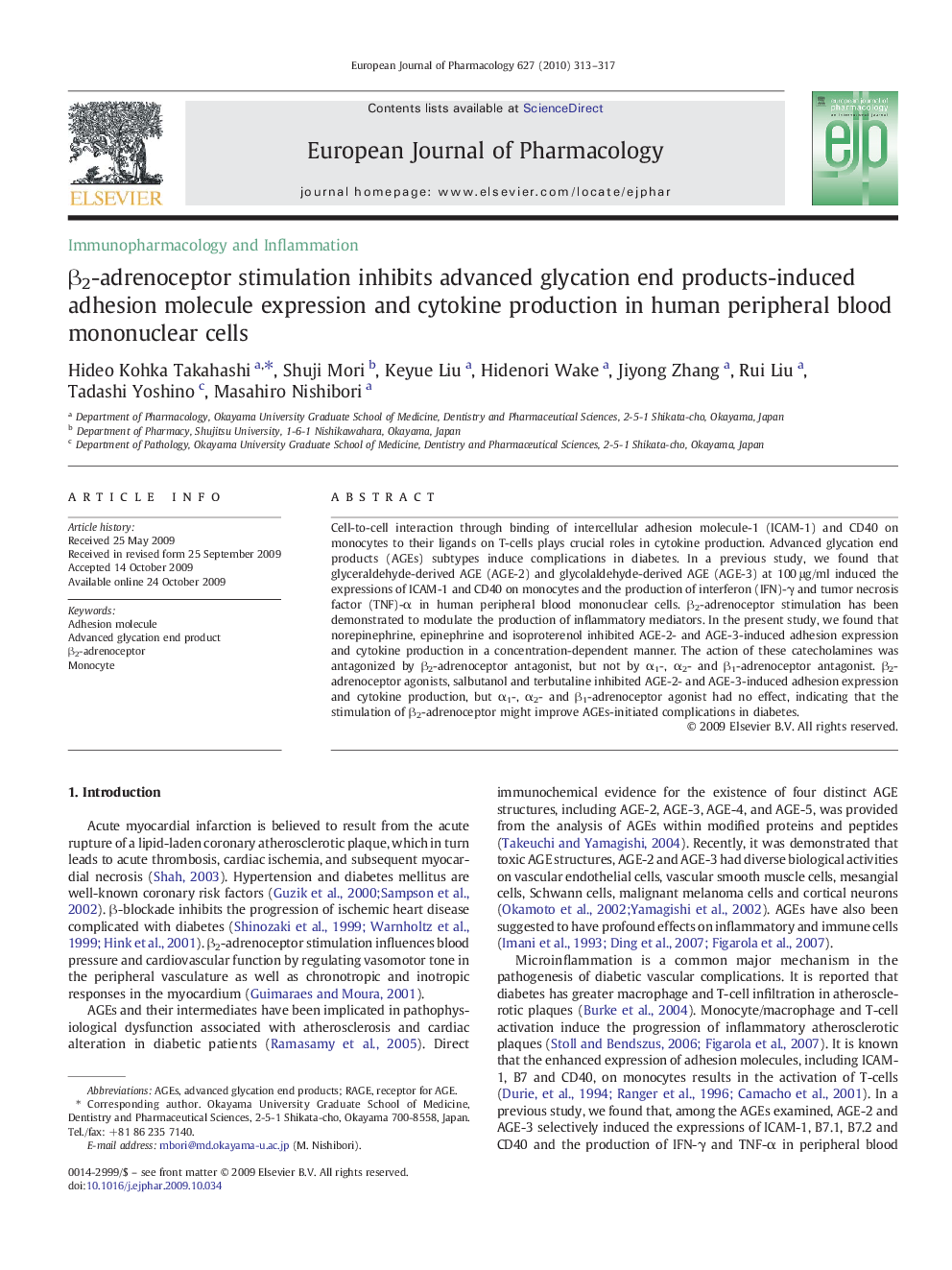| Article ID | Journal | Published Year | Pages | File Type |
|---|---|---|---|---|
| 2533783 | European Journal of Pharmacology | 2010 | 5 Pages |
Cell-to-cell interaction through binding of intercellular adhesion molecule-1 (ICAM-1) and CD40 on monocytes to their ligands on T-cells plays crucial roles in cytokine production. Advanced glycation end products (AGEs) subtypes induce complications in diabetes. In a previous study, we found that glyceraldehyde-derived AGE (AGE-2) and glycolaldehyde-derived AGE (AGE-3) at 100 μg/ml induced the expressions of ICAM-1 and CD40 on monocytes and the production of interferon (IFN)-γ and tumor necrosis factor (TNF)-α in human peripheral blood mononuclear cells. β2-adrenoceptor stimulation has been demonstrated to modulate the production of inflammatory mediators. In the present study, we found that norepinephrine, epinephrine and isoproterenol inhibited AGE-2- and AGE-3-induced adhesion expression and cytokine production in a concentration-dependent manner. The action of these catecholamines was antagonized by β2-adrenoceptor antagonist, but not by α1-, α2- and β1-adrenoceptor antagonist. β2-adrenoceptor agonists, salbutanol and terbutaline inhibited AGE-2- and AGE-3-induced adhesion expression and cytokine production, but α1-, α2- and β1-adrenoceptor agonist had no effect, indicating that the stimulation of β2-adrenoceptor might improve AGEs-initiated complications in diabetes.
